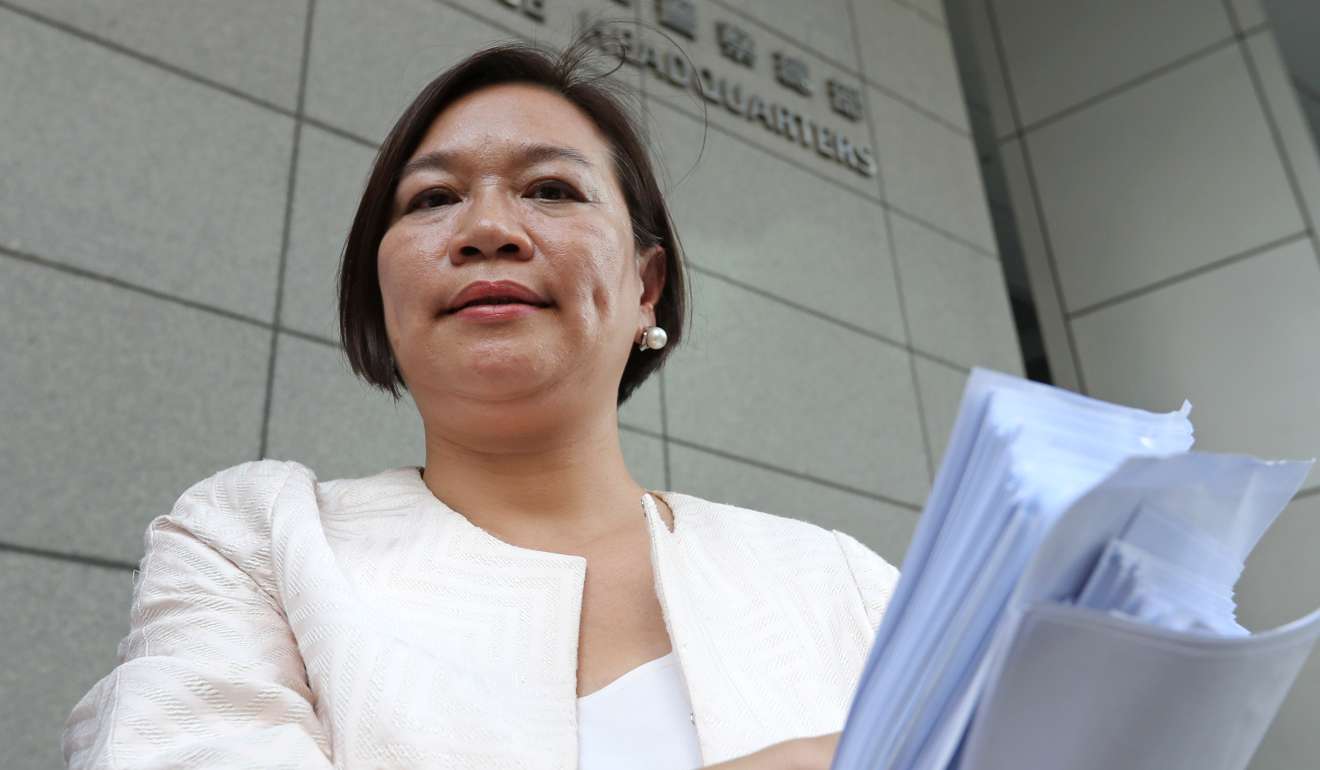
‘No plan’ to criminalise insulting police in Hong Kong in wake of Occupy court case
Calls for legislation making insulting police officers a criminal offence have been made since seven officers were jailed for two years for attacking an Occupy activist
The Security Bureau said on Monday that it had no plans to introduce a new law to ban insulting behaviour against police officers, despite renewed calls for such legislation following the jailing of seven officers for the assault of an Occupy activist.
Police Commissioner Stephen Lo Wai-chung, also appeared hesitant on the proposal on Monday, saying such acts were already covered by existing regulations.
Speaking at the Islands District Council meeting, the police chief said he welcomed any new law that helped the work of the force, but introducing a law to ban insulting acts against policemen was complicated.
“This is a complicated matter. There are still many considerations to be done before rolling it out,” said Lo. “Existing law at the moment can bound those who do not cooperate with the force, such as assault on police officers and obstructing police officers’ execution of duties.”
Each charge carries a maximum penalty of two years imprisonment.
A spokesman from the Security Bureau said: “At present, we have no plan to legislate against insulting police officers, but we will continue to keep in view the law enforcement situation of front-line police officers.”
The jailing of the seven officers for two years each in the controversial assault case has reignited tensions that first exploded during the 79-day civil disobedience movement of 2014, when thousands of protesters occupied major thoroughfares to demand greater democracy.
Many police supporters said the jail term was too harsh as they claimed that the seven officers were insulted by activist Ken Tsang Kin-chiu, who is currently appealing his own five-week prison sentence for assault.
Pro-establishment lawmakers, including barrister Priscilla Leung Mei-fun, renewed the calls after the court ruling to uphold “dignified law enforcement for the police”.
The chairman of the Junior Police Officers’ Association, Joe Chan Cho-kwong, said some officers approached him and hoped to address the idea of introducing the new law in the coming general meeting on Wednesday night, but he added it was not on the agenda of the meeting.
“If a member raises a formal request during the meeting, I will make an official record and follow up the idea in the future. But it is not on the discussion table for now,” Chan said.
When asked about his views on the law, Chan said it could be a possible direction, but said it is more important for the society to look at why the convicted seven officers assaulted Tsang.
But a senior police officer shared a different view to the Post as he found the new law unfair to citizens: “If a policeman verbally insulted a citizen, he or she would only face disciplinary punishment upon complaint instead of prosecution. The new law will only unduly highlight the status of law enforcers in the society,” said the force insider.
Democratic Party lawmaker, Lam Chuek-ting, said the legislation would only intensify the tension between police and the public.
The idea of enacting such a legislation was first brought up by Lo’s predecessor, Andy Tsang Wai-hung, in 2012 as he said there were around 500 cases of involving assault on police officers every year and called for public respects to his men.


